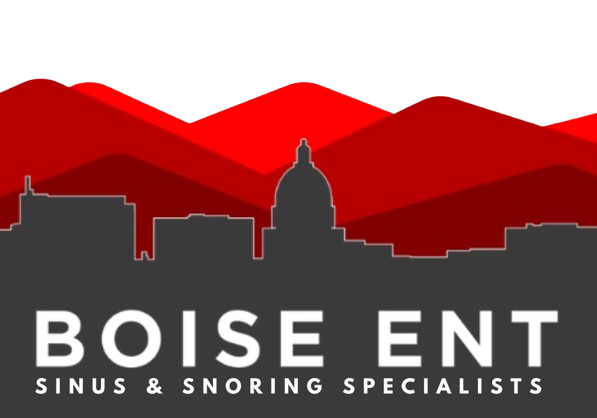Understanding the Causes and What You Can Do Have you ever caught an unpleasant odor…

How Serious Is Your Sinus Infection? When to Worry and What to Watch For
We all know the misery of sinus pressure, a stuffy nose, or post-nasal drip. But when is a sinus infection just a temporary illness — and when is it something more serious? Here’s what you should know.
Acute vs. Chronic Sinusitis: What’s the Difference?
Most sinus infections are acute, meaning they appear suddenly and resolve within a few weeks. They’re often triggered by viral colds — something you catch on a plane, from a child in daycare, or during allergy season. But when symptoms persist beyond three months, it becomes chronic sinusitis, which can be more difficult to treat. The longer the symptoms drag on, the higher the risk of complications and the more likely you may need surgical intervention.
What Actually Happens in the Sinuses?
Imagine your sinuses as air-filled pockets located behind your cheeks, eyes, and forehead. These spaces produce mucus continuously, which drains through tiny openings into the nasal cavity. If these openings become blocked — due to swelling, infection, or structural issues — the mucus stagnates. Stagnant mucus is like still water: it breeds bacteria. This leads to inflammation, further blockage, and more mucus. It’s a vicious cycle that, if untreated, can create long-term problems.
Red Flags: When a Sinus Infection Gets Serious
You should always monitor your symptoms. If you experience any of the following, seek medical attention quickly:
- Severe Facial Pain (especially >7/10 in intensity)
- Eye Swelling or Redness
- Visual Disturbances
- Severe Headache or Sudden Onset Headache
- Mental Confusion or Cloudiness
- Frequent or Severe Nosebleeds
- High Fever (>102°F)
- New-Onset Dizziness
These can be signs of serious complications like:
- Orbital Cellulitis (eye infection)
- Meningitis
- Brain Abscess
- Osteomyelitis (bone infection)
As I often tell my patients, anything near the brain, eyes, or bone needs close attention due to the thin walls separating these areas from the sinuses.
How to Tell if a Sinus Infection Has Spread to the Brain
If you’re experiencing any of the red flags mentioned above, it’s crucial to consider the possibility that the infection may have spread to the brain or other critical areas. Complications such as meningitis or a brain abscess can be life-threatening, so prompt medical evaluation is essential if you notice any of these symptoms. Mental confusion, severe headaches, and high fever are key warning signs of this potential spread.
When to Seek Medical Help Near You
- 0-2 weeks: Try at-home care first. Nasal saline rinses, over-the-counter sprays, humidifiers, and rest often help.
- 2-4 weeks: Time to see a primary care doctor if symptoms persist or worsen.
- Beyond 4 weeks (especially past 3 months): Schedule an appointment with an ENT specialist.
How We Diagnose Sinus Infections
My diagnostic process typically starts with a detailed history and nasal endoscopy. If needed, I’ll order a CT scan to view sinus anatomy and rule out complications. In rare cases, additional tests like blood work or MRI scans are necessary.
Treatment Options Near You
- Mild Cases: Saline rinses, nasal sprays, antihistamines.
- Moderate Cases: Short courses of antibiotics and steroids.
- Chronic or Recurrent Cases: Possible surgical options to open blocked sinus pathways and restore proper drainage.
Final Thoughts
Sinus infections are common — but they’re not always harmless. Understanding the difference between a cold and something more serious can make all the difference. If your symptoms last too long or become more intense, don’t tough it out — seek medical care before things escalate.
Don’t Ignore the Warning Signs — Reach Out to Boise ENT
If your sinus infection has lasted more than a few weeks, or you’re noticing worsening pain, pressure, eye swelling, or headaches, it’s time to take action. Delaying treatment can lead to more serious complications. At Boise ENT, we’re equipped to provide comprehensive evaluations and targeted treatments to help you recover quickly and prevent chronic problems. Call or book an appointment online today to get expert care from a team that’s committed to your long-term sinus health.
Our Office:
Address: 8854 W Emerald St Ste 150, Boise, ID 83704
Phone Number: (208) 593-2346
Hours: Monday – Tuesday 8:30 AM – 5 PM



